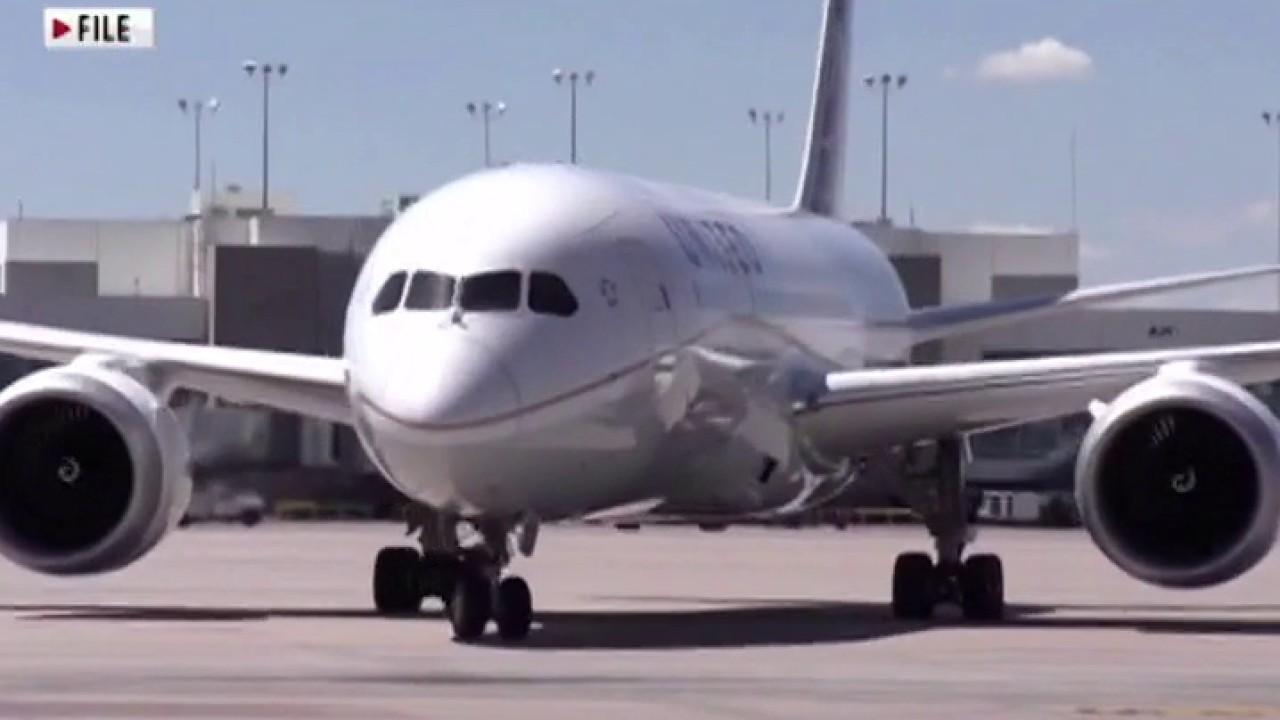Budget airline Ryanair expected to lose $1 billion by end of financial year
The budget airline attributed the loss to lockdown restrictions
COVID-19 continues to wreak havoc on the airline industry.
Irish budget airline Ryanair on Monday claimed it could lose $1 billion this year as coronavirus-induced travel restrictions continue to negatively impact the travel sector.

Irish budget airline Ryanair could lose up to $1 billion this year. (Ryanair)
The airline’s billion-dollar loss is five times more than its previous record for annual loss in 2009, according to Reuters. Ryanair expects to lose between 850 million euros ($1.03 billion) and 950 million euros ($1.15 billion) by March.
RYANAIR MUST FACE U.S. SHAREHOLDER LAWSUIT OVER UNIONIZATION COMMENTS
The company attributed the loss to lockdown restrictions hindering travel in the U.K. and European Union. The news also comes a week after the U.S. began requiring all passengers to present a negative coronavirus test before entering the country as the virus continues to spread.
“COVID-19 continues to wreak havoc across the industry,” the airline said in a statement, adding that FY21 "will continue to be the most challenging year in Ryanair’s 35-year history," according to Reuters.
| Ticker | Security | Last | Change | Change % |
|---|---|---|---|---|
| RYAAY | RYANAIR HOLDINGS PLC | 68.61 | +1.06 | +1.57% |
CLICK HERE TO GET THE FOX BUSINESS APP
RyanAir CEO Michael O'Leary also noted on a Monday earnings call that its passenger bookings dropped 78% to 8 million, down from 36 million in 2019.
CLICK HERE TO READ MORE ON FOX BUSINESS
Meanwhile in the U.S., the Centers for Disease Control and Prevention issued an order Friday requiring face masks to be worn on all public transportation, including airplanes, trains, and buses. The order went into effect Monday and states that individuals must wear masks over their nose and mouth while in transit hubs like airports and subway stations.
Just before Christmas, the CDC also mandated that all U.K. travelers entering the U.S. would be required to present proof of a negative COVID-19 test, following news of the widespread outbreak of a strain first detected in the U.K. Weeks later, the CDC expanded that requirement to all international travelers arriving in the U.S.




















